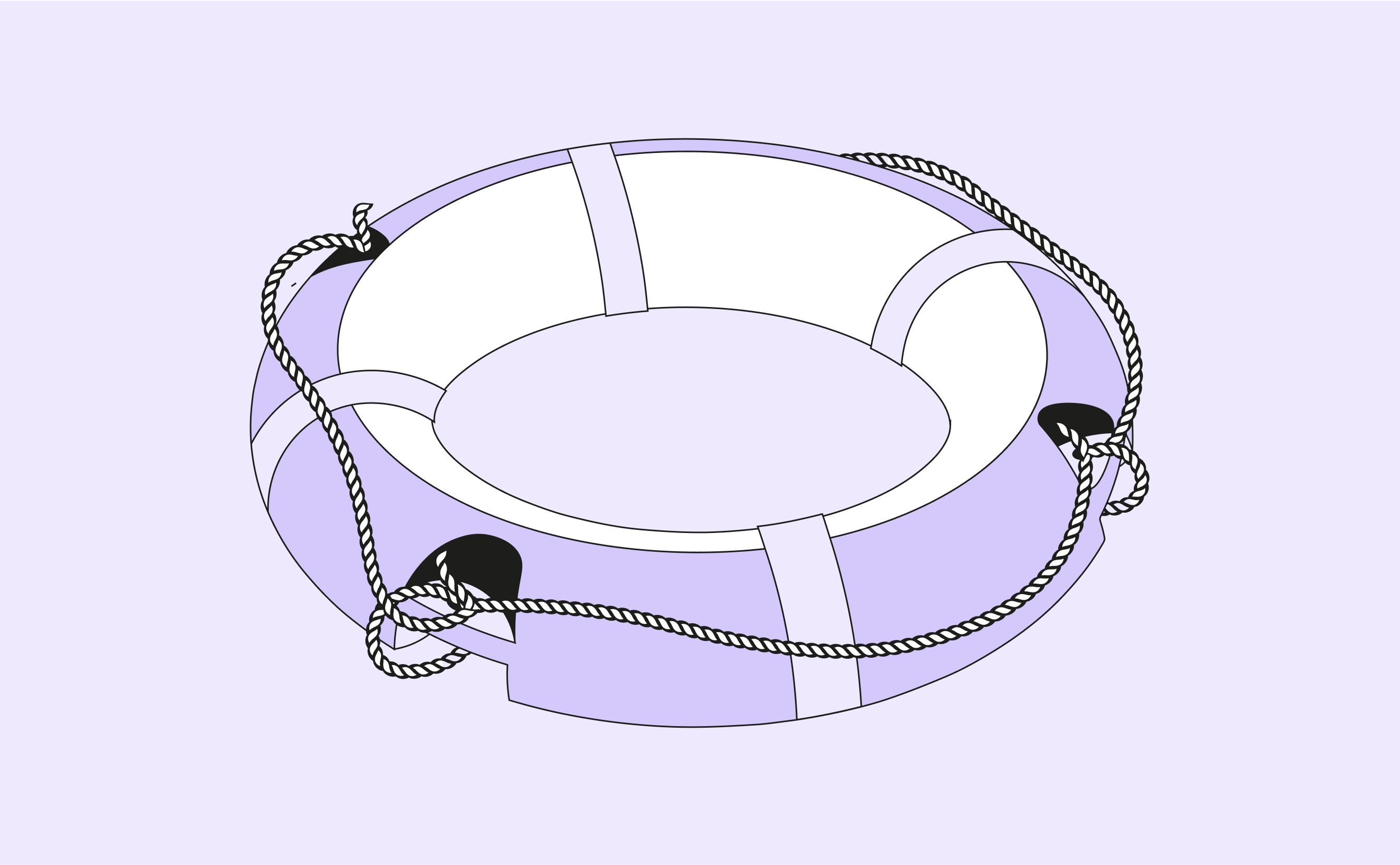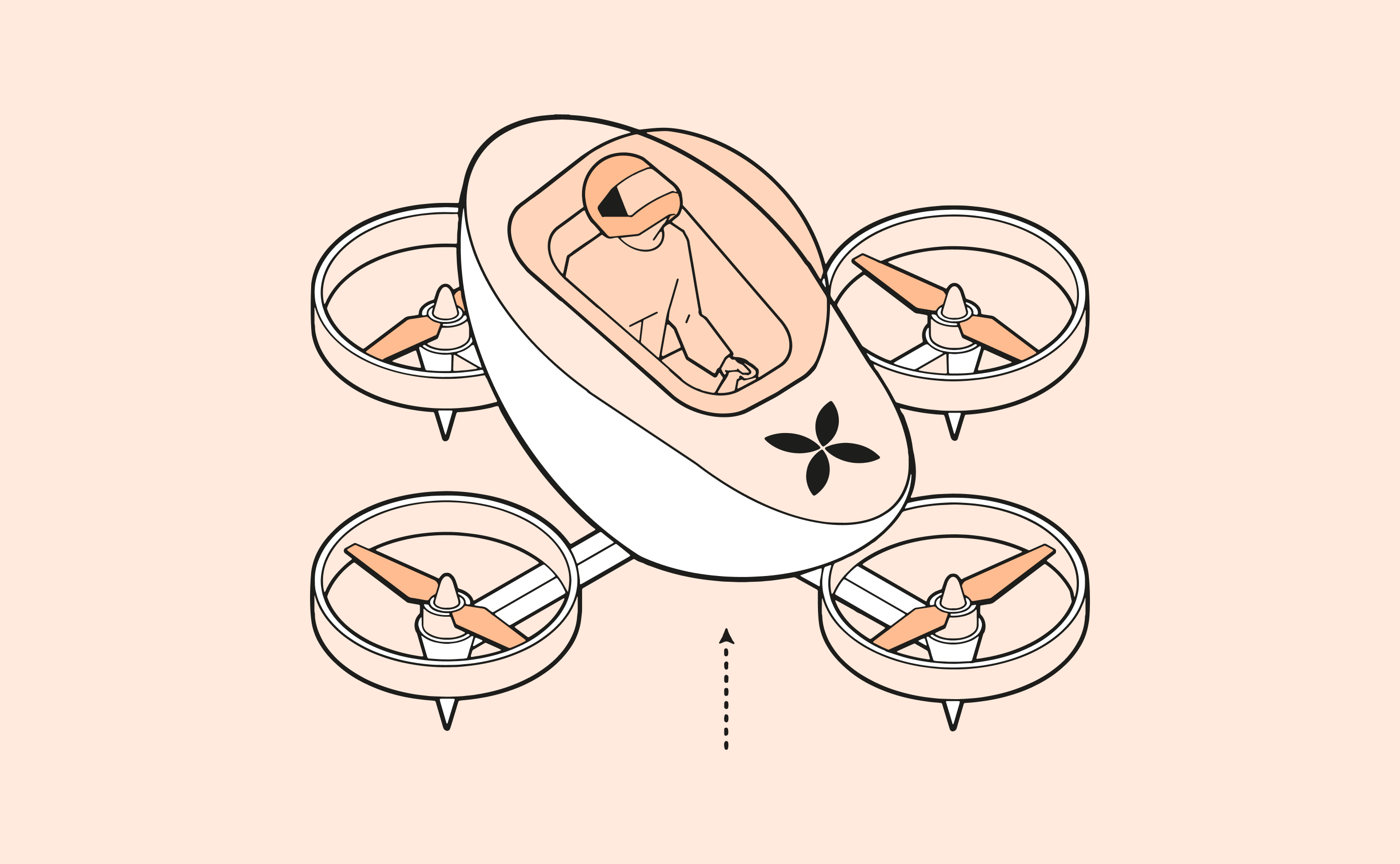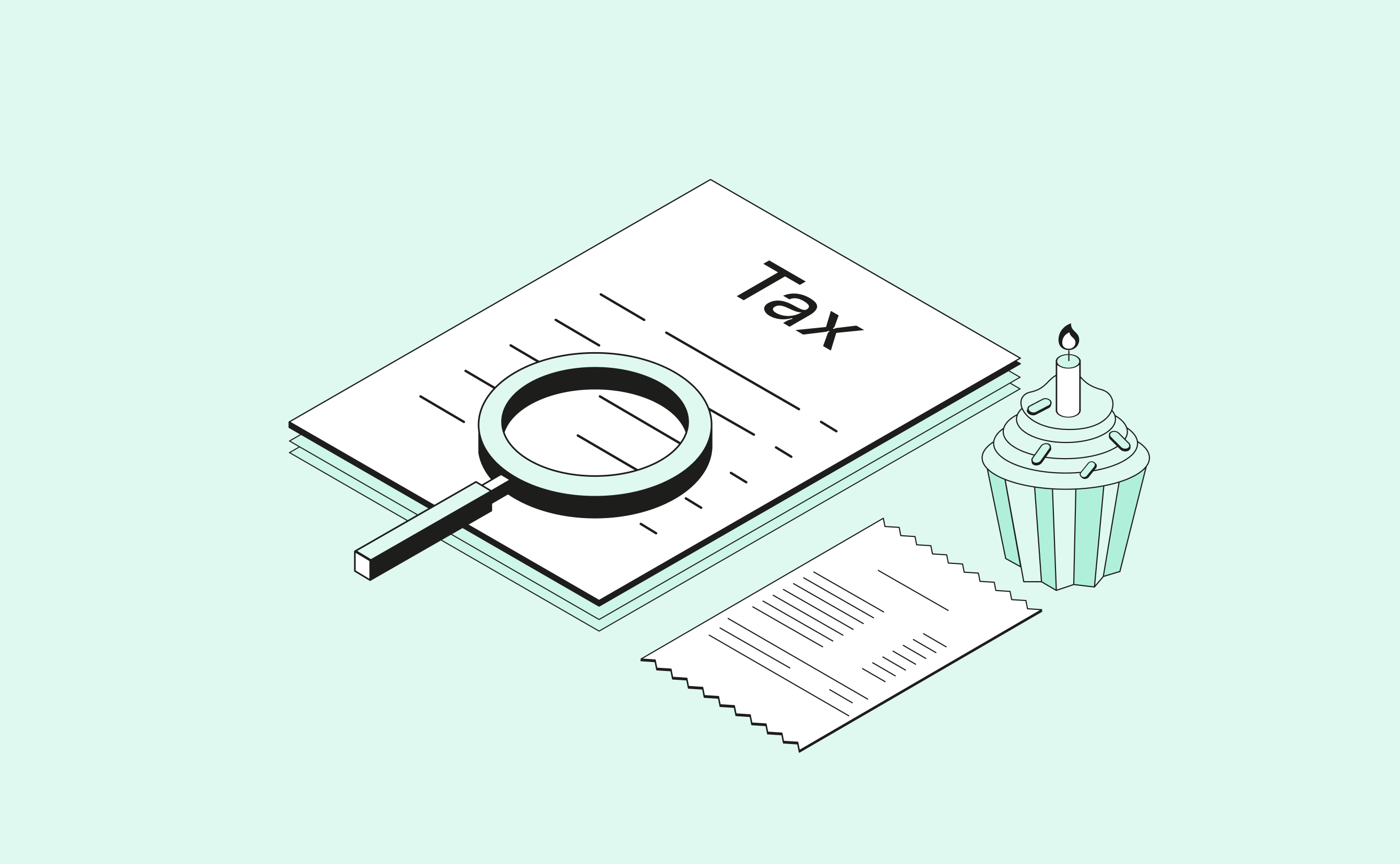All you need to know about the aid available to business founders.
What help can I get to start my own company in 2023?

If you’re setting up your own company in France, you’re probably well aware of the legal obligations when it comes to managing your finances, the dull but very important matters such as social charges, tax contributions, and bookkeeping.
But as well as these duties, you’ve also got rights, and they include the right to get support.
There are numerous sources of financial aid to get your project up and running. You may need to dig a little to find them, but they can be well worth the effort. Whether it’s before, during, or after the company creation phase, a helping hand is always welcome.
So what help is available and where can you find it? Step this way and let’s find out.
"L’Aide aux Créateurs et Repreneurs d’Entreprise (ACRE)"
- You hold more than a 50% share of the company’s social capital, either:
- alone,
- or, along, with either your spouse, civil union partner, parents/grandparents, or children/grandchildren, you hold a combined share of at least 50% of the company, and you alone hold a share greater than 35%.
- You are the company's director, and:
- you alone hold at least one-third of the company’s social capital,
- or, along with either your spouse, civil union partner, parents/grandparents, or children/grandchildren, you hold a combined share of at least a third of the company and at least a 25% share by yourself alone.
If that seems slightly complex, let's break it down with a couple of examples:Example 1: Marie set up a company along with Camille and Antoine. Marie holds a 50% share of the capital, with both Antoine and Camille holding 25% each.Therefore, Marie is eligible for the ACRE because she owns 50% of the shares.Example 2: Marie set up a second company with her father Franck and another associate, Mark. The shares are distributed as follows: Marie has 40%, Franck owns 40%, and Mark owns 20%.Marie owns more than a 50% share combined with her parent's share (40% + 40% = 80%). She also owns more than 35% of the shares by herself. She can therefore claim the ACRE. - you alone hold at least one-third of the company’s social capital,
- You receive unemployment benefits or have been registered with Pôle Emploi for more than 6 months without receiving unemployment benefits.
- You receive a jobseeker's allowance (Revenu de Solidarité Active - RSA - or Allocation de Solidarité Spécifique - ASS).
- You receive the PreParE childcare subsidy (Prestation partagée d’éducation de l’enfant)
- You are aged between 18 and 25.
- You are aged under 30 and have a disability certificate.
- You have signed a Contrat d’appui au projet d’entreprise (Cape).
Good to know: The Contrat d’appui au projet d’entreprise (Cape) is a contract that gives you access to a company or association that will help you prepare and create your own company. This third party carries out the feasibility study of your business plan with you and supports the development of your business.
- You’re creating or buying a business in a ‘priority neighborhood’ (QPV - Quartier Prioritaire de la Ville). You can find a list of all these QPVs on this official government website.
A quick heads-up: the ACRE is no longer given automatically to micro-entrepreneurs.
You need to request the ACRE from URSSAF within 45 days of setting up your micro-enterprise. So, for example, if you created your micro-enterprise on 1 January 2023, you have until 15 February of the same year to request ACRE. Past that date, it will have been too late.
A complete dossier must include the following:
- A filled-out ACRE form (cerfa 13584*02)
- The relevant proof that you meet the above criteria (for example, ID proving you are under 26, etc.)
Exemption from Company Real-Estate Contribution ("Cotisation Foncière des Entreprises - CFE")
- Your pre-tax annual revenue is below €5,000
- Your business is registered within a ‘priority neighborhood’ (QPV, see above)
- Your business activity is one of the following:
- taxi driver, ride-hailing driver, or ambulance driver, and you own one or two cars for business purposes; - agricultural worker; - independent door-to-door salesperson with a gross annual pay of less than €6,787; - company producing biogas, electricity, or heat by methanization; - professional artist (painters, photographers, sculptors, engravers, etc.); - independent teachers of science or the arts; - entrepreneurs wishing to open an independent reference library (or libraries with public premises and a turnover made up of at least 50% of new book sales); - specialist newsagents; - subsidized housing organizations and property owners or renters who let or sub-let a part of their home on an occasional basis; - people who rent our part of their personal home for tourism purposes (bed & breakfast, gîte or guesthouses). A temporary exemption can be granted to businesses located in a priority neighborhood (QPV) whose base taxable income is below €30,630 (2023).
To apply for a total exemption from the CFE, you must send your request to the business tax office (Service des Impôts des Entreprises - SIE) along with an explanation of the request.
Relief from income tax in an Urban Free Zone ("Zone Franche Urbaine" - ZFU)
There’s good news if your business is registered in what’s known as an Urban Free Zone (Zone franche urbaine), as you may receive relief from corporate income tax (impôt sur les bénéfices).
An Urban Free Zone (known as ZFU in France) is a neighborhood with more than 10,000 inhabitants located in a deprived or underprivileged area. A list of all ZFUs (link in French) is available on the French ministry website.
To qualify for the exemption, you must also:
- have 50 or fewer employees
- declare a turnover of less than €10 million per year
- not be more than 25% owned by a company with over 250 employees and an annual turnover of more than 50 million euros.
This exemption can prove extremely useful to companies. It provides 100% income tax relief for five years for income declarations below €50,000.
- 60% for the 6th year of exemption
- 40% for the 7th year of exemption
- 20% for the 8th year of exemption.
VAT exemption
Value Added Tax is, generally speaking, a levy on consumption.
In theory, it is not up to vendor companies to absorb VAT costs, but rather the end consumer. The vendor company simply collects the amount on behalf of the government.
In practice, however, VAT can and does influence prices and tariffs. For example, this happens when you sell products or services to members of the public, who - unlike professionals and companies - cannot recover the VAT on their purchases.
It is possible to claim VAT exemption under certain conditions, and to qualify, your turnover must not be greater than:
- €91,900 for activities in commerce or the accommodation sector
- €36,800 for services and liberal professions.
Note: these new thresholds are valid for 2023, 2024 et 2025.
The exemptions apply automatically if you do not exceed the above limits, and you do not need to make any requests. Having said that, if you do exceed those limits, it is up to you to contact the business tax office (Service des Impôts des Entreprises - SIE) in order to obtain a VAT number. So keep a close eye on how your turnover grows to avoid hefty fines when the tax inspectors come calling.
Financial support from "Pôle Emploi" and "La Caisse d’allocation familiale"
Return-to-work allocations ("L’Allocation d’aide au retour à l’emploi" - ARE)
- be registered as a job-seeker with the French national unemployment agency Pôle Emploi
- have worked at least 6 months (130 days or 910 hours) in the last 24 months starting from the end of your last work contract
- update your registration on the Pôle Emploi website every month.
Help to create or buy a company ("L’aide à la reprise et à la création d’entreprise" - ARCE)
Not to be confused with the ACRE or the ASS (see above), the ARCE is specifically for those seeking to create a new company or buy an existing one. Under this system, your unemployment benefits are no longer paid to you monthly, but rather in two installments, thus helping to provide you with capital. This can give you a significant boost when launching your project. But, of course, there are conditions to be met. To qualify for the ARCE, you must:
- have the right to unemployment benefits
- have created or bought your company after the end of your last work contract.
Independent activity bonus from the "Caisse d’allocations familiales" (CAF)
An activity bonus is financial aid from the French national family allowance fund (Caisse d’allocations familiales - CAF) to support low-income workers.
The good news is that it doesn’t only apply to full-time, contracted employees. Freelancers and the self-employed can also access it as long as they are:
- aged 18 or over
- of French nationality, a citizen of the European Economic Area, Swiss, or holders of the right to work in France
- living in France.
There are also income criteria that apply to the activity bonus; eligibility depends on the industrial and commercial profits (bénéfices industriels et commerciaux - BIC) or non-commercial profits (bénéfices non commerciaux - BNC) that you have declared to the tax office.
If you wish to know whether you are eligible for an activity bonus, you can use a handy bonus calculator on the CAF’s website.
Help in the form of loans
The NACRE system
- You’re a job-seeker and receive unemployment benefits
- You’ve been a registered job-seeker for more than 6 months but do not receive unemployment benefits
- You are between 18 and 25 years of age
- You are 29 years of age or younger and have a disability certificate
- You are 50 years of age or over and registered with Pôle Emploi
- You are a business founder and receive a jobseeker's allowance (Revenu de solidarité active - RSA, Allocation de Solidarité Spécifique - ASS or the Allocation Temporaire d’Attente - ATA)
- You are an employee buying a business that has been declared bankrupt or liquidated
- You’ve created a company in a ‘political priority zone’ (Quartier prioritaire de la politique de la Ville - QPPV)
- You have signed a Contrat d’appui au projet d’entreprise (Cape)
An ‘Honor Loan’ from Bpifrance
An Honor Loan (Prêt d’honneur) is a good alternative to the NACRE and gives you the chance to borrow larger sums of money - from €2,000 to €50,000, depending on your project. Again, this loan is interest-free but must be combined with a bank loan.
If you’re interested in this process, you can make a request directly with any lender that offers an Honor Loan, like Réseau Initiative France or Réseau Entreprendre. Your dossier will be examined and assessed by a committee.
Financial aid for specific sectors
Innovation: The "French Tech" grant and the "French Tech Emergence" grant
If you’ve created a company that qualifies as a “young innovative enterprise”, you can apply for a special grant, the Bourse French Tech, that can be worth anything up to €30,000 depending on your project and its needs.
Your company may use state-of-the-art technology to solve one of the great challenges of the 21st Century, like healthcare, mobility, or climate change. If you fit this ‘Deep Tech’ category, you may be able to get a grant of up to €90,000, known as the Bourse French Tech Emergence.
So, where do you apply?
To request either a Bourse French Tech or a Bourse French Tech Emergence, you’ll need to get in touch with the Banque publique d’investissement (BPI) to present to them your project and their advisors will guide you through the entire process. If your project gets an initial green light, you’ll then have to send a full dossier to your regional BPI head branch. This can be done online on the BPI’s website, and you should receive an answer within one month.
The cultural sector
The field of culture took a serious hit during the Covid pandemic but fortunately, dozens of initiatives have been created to support businesses in this domain. All the available aid programs can be found on the French culture ministry’s website.
What help can I find for my specific field of activity and/or location?
If you work in a specific location or field of activity and are wondering whether your business qualifies for financial assistance, you’ll find plenty of useful information on this dedicated platform. You can customize your search and consult all the aid and support programs open to you. Take the time to have a good look around, as many programs are little-known but much-appreciated by those who find them.
Financial aid for company creators in specific situations
Help for business founders with disabilities: the AGEFIPH
- the applicant must be registered with a disability
- she or he must have company director status
- she or he must provide a personal deposit of at least €1,500.
- a detailed presentation of the project that includes the starting date of activity, legal status, and business address
- market research
- a detailed finance plan featuring financial needs and company expenditure
- proof of the personal deposit
- your bank details
- a written promise to repay the subsidy granted by AGEFIPH if the company is sold in the 12 months following its creation.
For young business founders: Cap’Jeunes
If you’re under 26 years of age and want to set up your own company, you should be eligible for the Cap’Jeunes program put in place by the associative network France Active. It can provide you with financial support of up to €2,000 to help you make your initial business investments. It also offers a personal mentoring program to guide you through the early stages of your project and boost your chances of continued success.
To access this support, you should send a request to your nearest France Active office, which you’ll be able to find via this link.
Student-entrepreneurs
- re-arrange your study schedule to fit in with your professional needs and obligations
- access co-working spaces run by the PEPITE network
- get personal mentoring from a PEPITE network expert
- find financial aid such as an Honor Loan.
Conclusion: seek and you should find
Whatever your field of activity, your location or your life circumstances, there’s a good chance you’ll find assistance adapted to you. There are hundreds of different programs in France, most of which can be found in this Chamber of Commerce database.
Yes, you have to do some digging. There will be dossiers to complete and administrative hoops to jump through, but your new company is worth it. Somebody, somewhere is waiting to help you on your way and make your business a success.
Just do what you can to find them.






